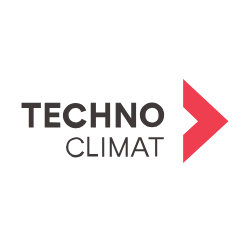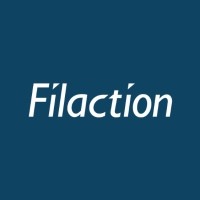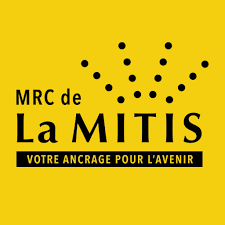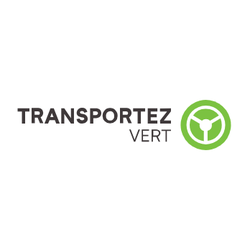
Closed
Government assistance program for public transportation
Last Update: October 27, 2025
QC, Canada
Financial support for sustainable public transportation projects in Quebec
Grant and Funding
At a glance
Funding available
Financing goals
Increasing community impact
Integrate new technologies
Reduce the ecological footprint
See more
Eligible Funding
- Up to 100% of project cost
Timeline
- Closing date : September 30, 2024
Eligible candidates
Eligible Industries
- Transportation and warehousing
Location
- Quebec
Legal structures
- All legal structures
Annual revenue
- All revenue ranges
Organisation size
- All organization sizes
Audience
- Canadians
Overview
The Government Assistance Program for Public Transportation (PAGTCP) in Quebec provides financial support covering up to 100% of eligible expenses for major transit infrastructure and electrification projects, with different maximum rates based on project categories. The program aims to maintain, improve, and expand public transit networks, supporting activities such as the acquisition of electric buses, development of transport infrastructure, technological upgrades, and measures to improve accessibility and intermodality.
Activities funded
- Acquisition of fully electric buses for public transit networks.
- Development or expansion of metro and commuter rail systems, including new stations and lines.
- Creation, improvement, or electrification of transit infrastructure such as garages, maintenance centres, and terminuses.
- Implementation of technological projects supporting public transit operations, such as intelligent transportation systems and real-time passenger information systems.
- Initiatives to enhance accessibility and mobility for people with disabilities within public transit services.
Examples of admissible projects:
$ 4,850,000
Acquisition of five fully electric buses and spare batteries
$ 1,055,000
Implementation of an intelligent transportation system for bus fleet
$ 98,000,000
Expansion of metro line with new accessible station construction
$ 815,000
Construction of accessible bus shelters and passenger information signs
$ 3,100,000
Creation of an adapted transportation maintenance center
$ 2,250,000
Expansion of a terminal with electric charging infrastructure
Eligibility
- The applicant must be a public transit authority, transportation company established by law, the regional metropolitan transit authority (ARTM), "exo" (Réseau de transport métropolitain), or a municipal/intermunicipal organization responsible for public transportation (OMIT), including municipalities and municipal regional counties with declared competency in public transit.
- The project must relate to public or adapted transportation services and be necessary for the operation, improvement, or development of public transit networks.
- The project must be included in the applicant’s capital investment plan or, for organizations without such a plan, be supported by a board resolution confirming financial participation.
- The project must be registered in the Quebec Infrastructure Plan (PQI) and, if located in the Montreal metropolitan region, have an official endorsement from the ARTM.
- The application and all required documentation must be submitted to the Ministry of Transport and Sustainable Mobility by the official deadline.
Who is eligible?
- Public transit corporations established under the Act respecting public transit companies
- Regional Metropolitan Transport Authority (ARTM)
- Metropolitan Transit Network (exo)
- Municipal and intermunicipal transport organizations (OMIT), including municipalities and regional county municipalities (MRCs) that have declared competency in public transit, municipal and intermunicipal transport boards, and groups of municipalities organizing and financing urban or regional public transit services
Who is not eligible
- Organizations that have failed to meet their obligations in connection with previous government funding, after being duly notified, within the two years preceding the new funding request.
- Companies or organizations seeking funding for intercity transportation projects.
- Entities proposing projects for the acquisition of thermal-engine buses or vehicles (unless a lack of electric alternatives is explicitly demonstrated for vehicles of service).
- Companies not operating as municipal, intermunicipal, or public transit authorities as defined by provincial law (i.e., private or for-profit commercial organizations providing public transit services are not eligible).
Eligible expenses
- Professional fees and legal costs directly related to planning and realization of the project (excluding costs arising from legal actions or claims).
- Preparation of plans and specifications, engineering, and work supervision expenses.
- Construction and procurement costs required for project realization, including site preparation and associated services.
- Expenses required for electrification of networks, including acquisition of rolling stock, replacement of batteries for electric or hybrid buses, and necessary modifications to installations and infrastructure (excluding charging stations for clients or staff).
- Purchase and installation costs of equipment, systems, and devices needed for project implementation.
- Acquisition of spare parts to establish a minimum inventory ensuring ongoing operations.
- Acquisition of manual or portable tools specifically required for the project and not used for routine maintenance.
- Acquisition and installation costs of urban furniture and landscaping integral to an eligible project.
- Rental costs for land, buildings, vehicles, equipment, or other installations specifically needed during project works.
- Expenses for the construction or repair of infrastructure necessary for the operation of the eligible project (e.g., priority lanes for buses).
- Compensation measures required by regulation regarding impacts on wetlands and water environments.
- Mitigation measures to limit negative impacts caused by project work on service operations.
- Acquisition and installation costs of lighting and mandatory signage.
- Acquisition of land, including expropriation costs, rights of access, easements, surface rights, and servitudes.
- Costs associated with the purchase, repair, or expansion of buildings used directly for collective or adapted transport services.
- Costs for works, equipment, or devices to facilitate access and exit from vehicles and rolling stock.
- Communication activities directly associated with the project as stipulated in financial agreements.
- Acquisition of artworks for installations, as recognized under government policy.
- Short-term interest expenses related to project financing via the Quebec Ministry of Finance or a financial institution.
- Travel expenses for personnel involved in project monitoring, outside their service territory, adhering to government rates.
- Audit and evaluation costs required by the Ministry.
- Contingency fees and risk provisions necessary for project execution.
- Net applicable taxes (after eligible reimbursements).
Eligible geographic areas
- Province of Quebec
How to apply
1
Verify eligibility requirements
- Identify an eligible organization as per program criteria
- Confirm organization type and activity aligns with program objectives
- Ensure compliance with legal and regulatory requirements
2
Confirm project admissibility
- Ensure your project matches the categories and purposes described in the program
- Review the list of admissible and non-admissible projects
- Include accessibility measures for persons with reduced mobility, if required
3
Request preliminary authorization
- Submit a preliminary authorization request to the Minister
- Enlist the project in the Québec Infrastructure Plan (PQI)
- Provide a justification sheet, project description, cost breakdown, and timeline
4
Obtain preliminary authorization confirmation
- Receive confirmation of project inscription in the PQI from the Minister
- Obtain preliminary authorization statement
- No financial commitment by the Minister at this stage
5
Submit financial aid application
- Complete the prescribed financial aid application form, available on the Ministry’s website
- Prepare and gather all required supporting documents (project analysis, budgets, validation of needs, etc.)
- Email the full application package to the address provided by the Ministry
6
Await final authorization decision
- The Ministry analyzes the application and supporting documents
- If approved, receive written notice of project final authorization and maximum aid amount
- If denied, receive written notice of project refusal
7
Sign agreement and compliance forms
- For approved projects of $250,000 or more, sign an agreement to comply with program conditions
- Complete all required visibility and compliance protocols
8
Receive funding and report project progress
- Receive financial aid disbursements according to project progress and Ministry guidelines
- Provide reports, financial follow-ups, and any required audits as stipulated by the program
Additional information
- Beneficiaries must comply with the visibility protocol set by the Ministry for all financial aid programs.
- The Minister reserves the right to request additional or adjusted documents from applicants or beneficiaries.
- Full or partial reimbursement of financial aid may be required if program conditions are not met or documents are incomplete.
- Confidential data on users or project results cannot be disclosed to third parties without written authorization from the beneficiary.
Contacts
1-888-355-0511
QC, Canada
Apply to this program
Frequently Asked Questions about the Government assistance program for public transportation Program
Here are answers to the most common questions about the Government assistance program for public transportation. This section explains what the program is, how much funding is available, eligibility requirements, application deadlines, and other important details to help you determine if this grant is right for your business.
What is the Government assistance program for public transportation?
How much funding can be received?
Who is eligible for the Government assistance program for public transportation program?
What expenses are eligible under Government assistance program for public transportation?
Who can I contact for more information about the Government assistance program for public transportation?
Where is the Government assistance program for public transportation available?
Is the Government assistance program for public transportation a grant, loan, or tax credit?
Apply to this program
More programs like this

Grant and FundingOpen
Technoclimat
Environnement Québec (MELCC)Financial assistance for the demonstration of new technologies in Quebec

Grant and FundingOpen
Charge+
Propulsion QuebecSupports installation of electric vehicle charging infrastructure in Quebec

Grant and FundingOpen
Regions and Rurality Fund (RRF) - Component 1 - Support for regional outreach
Gouvernement du QuébecSupports regional projects impacting Quebec's territories and communities

Grant and Fundingarchived
Taxi Industry Modernization Support Program (PSMITT)
Minister of Transport and Sustainable Mobility of QuebecFunding to modernize Quebec's taxi industry operations and branding

Loans and Capital investmentsOpen
Mosaic Fund
FilactionBusiness loans for Quebec's cultural communities entrepreneurs

Grant and FundingClosed
Mitis MRC — Regional and Rural Fund (RRF) - Component 1
La Mitis RCM (MRC)Supports regional development in agriculture, tourism, and transportation

Grant and FundingOpen
Transportez vert — Eco-driving Training
Gouvernement du QuébecFinancial assistance to train drivers of light or heavy vehicules in eco-driving

Grant and FundingOpen
Public transit development assistance program – Stream 2 : Financial assistance for regional public transit
Minister of Transport and Sustainable Mobility of QuebecSupports regional public transit services and technological integration

Grant and FundingOpen
Public transit development assistance program – Stream 4 : Other financial assistance
Minister of Transport and Sustainable Mobility of QuebecSupports sustainable public transit initiatives and planning in Quebec

Grant and Fundingarchived
Financial assistance for the electrification of intercity and private transportation (Écobus)
Gouvernement du QuébecSupports electrification of private and intercity transportation
Sign up to our platform to access the Government assistance program for public transportation information sheet for free
Get access to 4,000+ programs, practical guides, personalized alerts, and an AI assistant to support your grant applications.